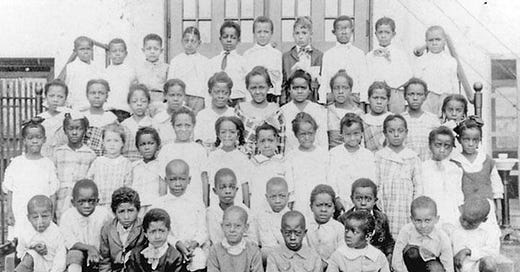It’s the tail end of May, which means that teachers and students are limping towards the finish line. It’s been a tough year for administrators, too, because schools still have not recovered from the pandemic. It’s clear that we are not returning to the magical time before March 2020.
It’s been a tough year for parents, too. There’s an old saying, “if you are a mother, you are only as happy as least happy child.” And our kids are not happy right now. Supporting our kids with these pandemic-related issues is emotionally exhausting and time consuming; many of us have not been able to resuscitate our careers. We certainly need a break, too.
For those who are able to find (and afford) good camps and programs for our kids, enjoy this time. If you have some quality time with the family in the mountains and the beach, that’s perfect. But let’s continue to advocate for families for whom the summer-break is very difficult.
Excellent Sheep
William Deresiewicz made a splash a few years ago writing that his students at Yale excelled at getting good grades, but lacked imagination, spontaneity, and joy. On Bari Weiss’s substack today, Deresiewicz made the connection between his former students at Yale and the woke students of today.
Excellent sheephood, like wokeness, is a species of conformity. As a friend who works at an elite private university recently remarked, if the kids who get into such schools are experts at anything, it is, as he put it, “hacking the meritocracy.” The process is imitative: You do what you see the adults you aspire to be like doing. If that means making woke-talk (on your college application; in class, so professors will like you), then that is what you do.
But wokeness also serves a deeper psychic purpose. Excellent sheephood is inherently competitive. Its purpose is to vault you into the ranks of society’s winners, to make sure that you end up with more stuff—more wealth, status, power, access, comfort, freedom—than most other people. This is not a pretty project, when you look it in the face. Wokeness functions as an alibi, a moral fig leaf. If you can tell yourself that you are really doing it to “make the world a better place” (the ubiquitous campus cliché), then the whole thing goes down a lot easier.
Oops, I Changed My Mind
Emily Hanford, a podcaster from American Public Media, probably did more to change reading instruction in this country than any of the big name education thinkers in this country. She simply highlighted the research of academics, who specialize in the science of reading. They said that the current reading model — the balanced literacy model which came out of Columbia Teachers College — did not work. They said that we needed to return to using a phonics-based reading model.
Her work went viral, thanks to the support of a million moms with dyslexic kids. Now, Lucy Calkins, the author of the balanced reading model, which failed so many kids, has conceded that she screwed up. Dana Goldstein does a profile of Calkins for The New York Times.
Alternative Pathways
There is growing movement to create better connections between high school, community college and the workforce. The edu-lingo is “alternative pathways.”
In the 74, Helping Young People Ages 14-24 Shift From HS to College, Work & Beyond, the authors discuss a number of programs, include one $2 billion program in California. This program will create a new opportunities for high school students to to take college credits, while still in high school (lingo: dual enrollment) and to connect them with real career experiences.
These efforts began before the pandemic, but the massive damage to vulnerable populations may be accellerating these programs.
And more…
Under pressure from declining enrollment numbers, budget constraints, and extremely needed students, public education is under stress. I wrote about this for my personal newsletter.
On my special education newsletter, I wrote about the latest dramas as we’re helping our son with autism :
Picture: Source



